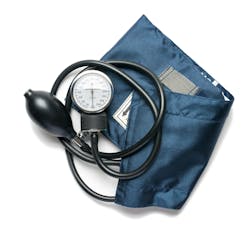Medicaid coverage helps people improve their cardiovascular health
Medicaid coverage had a significant impact on helping some people lower their blood pressure, a UCLA-led study suggests.
The findings were published September 23 in the peer-reviewed journal The BMJ.
The researchers used a machine-learning algorithm called causal forest to pick out people whose cardiovascular health could improve with Medicaid. Causal forest can estimate the effects of an intervention on an outcome based on a person’s characteristics, allowing for personalized predictions of how each individual will benefit from a given treatment.
The researchers dug into data for 12,100 Oregon experiment participants. They found Medicaid coverage lowered systolic blood pressure by 4.96 mmHg in people that the algorithm predicted would benefit most.
They also found that improvements in blood pressure were limited to individuals with low utilization of care prior to receiving Medicaid, and that those with higher prior utilization did not see similar improvements. These findings suggest that the null average effects of Medicaid coverage in the original study might be attributed to the benefits gained by individuals who previously lacked access to care being offset by the lack of benefits experienced by those who already had access to care before receiving Medicaid coverage.

